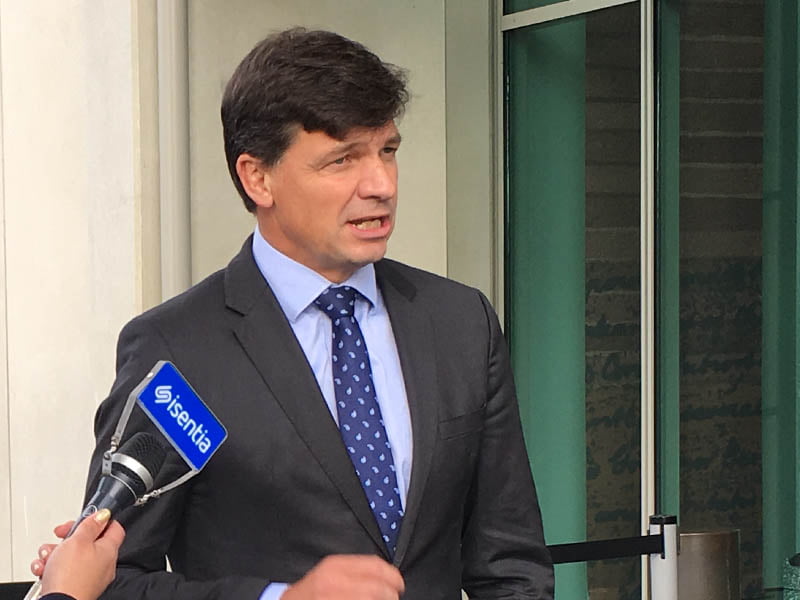The three levels of government in Australia will need to work in tight cooperation on cities policy and investment if the nation is to extract the maximum benefit from cities as the potential engine room of the digital economy.
Assistant Minister for Cities and Digital Transformation Angus Taylor said better collaboration would enable smarter, more informed investment decisions across initiatives that are aligned to a clear and agreed set of goals.
With agreed targets and innovative new financing arrangement for infrastructure, coupled with the propagation of agreed and interoperable smart city technology standards – cities can be a serious driver of jobs growth, new economic outputs, and improved liveability outcomes.

But the key, Mr Taylor said, is the creation of a set of policies that enable the different levels of government and other collaboration partners to throw their resources together, such that the combined impact is greater than the sum of individual projects.
“You can’t just focus on individual initiatives,” Mr Taylor told InnovationAus.com.
“What we’re seeking to do with our City Deals, with our infrastructure financing innovations, and with what we’re doing with the smart cities and suburbs program … It’s a suite of initiatives aligned toward some really clear goals around economic growth, job creation, amenity and liveability,” he said.
“It’s that alignment of a whole range of initiatives that will make our cities better places to live.”
“That does mean you do need interoperable networks, it does mean that standards matter, and it does mean that we’ve got to get all three levels of government aligned behind a sensible set of objectives for a city.”
And that’s about it. Collaborative government effort aligned to common goals, innovative new financing models for building infrastructure, and standards-based technology interoperability to enable systems that make a difference in one city to be replicable in another.
Mr Taylor, who on Thursday will speak at the InnovationAus.com Intelligent Communities forum in Melbourne on March 16, has outlined Commonwealth cities strategy in three parts.
The first relates to its City Deals program, which covers specific initiatives in three location – Townsville, Launceston and Western Sydney. The City Deals program is a new concept for Australia, but has been successfully implemented overseas (most notably in the UK.)
The second relates to smart investment, in which the federal government will play a much bigger role in the financing of infrastructure projects.
Mr Taylor has signalled the creation of a new financing agency within the Prime Minister’s portfolio to build the necessary skills into the bureaucracy to better assess and broker innovative financing deals.
The third policy plank of Mr Taylor’s strategy is the focus on smart technology, the powerful enabler for the broader cities agenda. The technology component includes the almost clichéd favourites like smart street lights, to smart parking meters, to any kind of sensor-based systems like smart traffic management or electricity grids.
Open data programs across all levels of government also has a big role to play here.
The third policy leg relates to smart technology, encouraging the uptake among cities and states and communities of ‘smart’ platforms. Mr Taylor has outlined new details of government’s $50 million Smart Cities and Suburbs Program, which is scheduled to be launched later this year.
Smart Cities and Suburbs is like an accelerator, supporting projects that apply innovative technology-based solutions to urban challenges. Open data programs across the federal, state and local governments will play a role here.
Mr Taylor launched a Future Ready program in Brisbane last week as a kind of precursor to the Smart Cities and Suburbs program.
The Future Ready program is a stepping stone to smart cities across Australia and will nurture ideas at a local level, putting together councils, entrepreneurs and experts to come up with ideas, to incubate ideas and to get them to a point where funding makes sense.
The point of the program, Mr Taylor said, is to make a break from the traditional grants program on which both industry and governments had become too reliant.
“What we’re trying to do is accelerate the pace at which that [smart city] technology gets out there across Australia, and to create a robust and fast-growing sector of smart city providers and entrepreneurs,” Mr Taylor told InnovationAus.com.
“Really this is seed funding. It’s not intended to be the full amount of funding that’s necessary to turn all of our cities into smart cities … but it is certainly intended to accelerate the pace at which these fantastic new technologies are rolled out,” he said.
Do you know more? Contact James Riley via Email.

